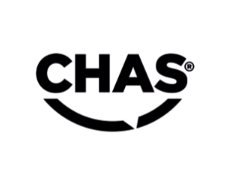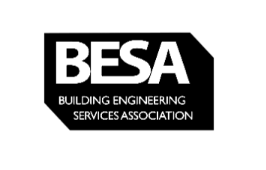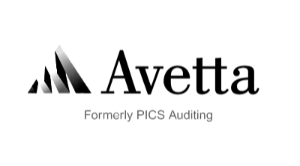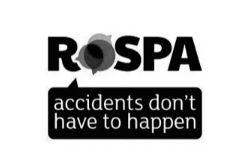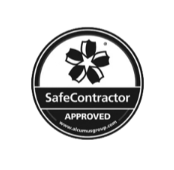- New survey reveals average of three days missed per school term due to periods – higher than cold, flu, holidays or truancy
- A third admitted either they, or someone they know, has been impacted by period poverty in the last 12 months
- Nearly half of teenage girls believe period poverty prevents girls from doing well at school – and a third believe it holds girls back from achieving their aspirations
- Half of girls feel let down by not enough being done to prevent period poverty
- New research by phs lifts lid on scale of Period Poverty as it announces plan to offer coin-free sanitary vending machines to school for free
A new research report by hygiene services provider phs Group reveals nearly half of teenage girls (48%) feel let down by not enough being done to prevent period poverty.
The new survey on the experiences and opinions of 1,000 teenage girls across the UK found that taking time off school due to periods is now the most common reason for girls to be absent from class – more than colds, flu and holidays or truancy.
Almost one in five (19%) say they miss at least one week of school per term due to being on their period. By comparison, just 11% said they lose this much to holidays and just 12% to cold or flu. The research also found periods cause 3% to miss more than two weeks of school each term. Nearly one in 10 (7%) miss school as a direct result of being unable to afford or access sanitary products while more than one in ten (14%) don’t feel they can talk to staff at their school, causing them to stay home.
The phs research went on to find that a third of girls admit that they, or someone they know, has been impacted by period poverty in the last 12 months. One in 20 (5%) say they had been unable, or found it difficult, to afford sanitary products in the last 12 months with 4% saying they were unable to access them entirely. This has led to nearly one in five girls wearing sanitary products longer than they should, nearly one in 10 wearing something else other than sanitary products and the same amount having to spend their lunch or travel money on products. In addition, 1% have to resort to theft.
Worryingly, nearly half (46%) say they believe period poverty holds girls back from attending school and a third (30%) go as far as saying it holds them back from achieving their aspirations. Nearly one in 10 girls (8%) believe having to miss school due to the lack of access to sanitary products is the biggest barrier facing girls at school today.
The UK Government and Welsh Government have vowed to tackle this problem by offering access to free sanitary products in all schools with a similar directive already in place in Scotland. However, the survey highlights the need for swift implementation. Nine out of 10 girls feel period poverty is a real issue but more than half (52%) feeling it isn’t taken seriously enough. Half (48%) also say they feel let down that not enough has been done to prevent period poverty.
While this new pledge is a huge step forward, it will depend highly on how accessible these products are made in schools. A fifth (21%) of girls say they have no access to free sanitary products at home or elsewhere and, although 6% say they understand there is access to free products at their school, they do not know where these can be accessed from. Over three quarters (76%) of girls say they feel there should be free access to products in schools with 52% saying this should be in the form of free vending machines in the school toilets.
But it is not just access to products that is the issue with nearly half (46%) saying that more needs to be done to remove the stigma of periods and the same amount wanting more to be done to raise awareness about periods.
Clare Noble, head of healthcare at phs, said: “There is still a stigma attached to talking about periods and period poverty – and this is wrong. There should be no barriers to tackling period poverty and only by lifting the lid and recognising the scale of the problem can we ensure that it is effectively addressed. What’s significant about this research is that it focuses on the experiences and opinions of girls about period poverty over the last 12 months, demonstrating that it is a very current problem in today’s society. If nine out of 10 girls are telling us that period poverty is a real issue, we should all be listening and compelled to take action.”
Today marks the launch of phs Period Poverty, an initiative designed to raise awareness of the scale of period poverty in the UK and create a practical solution. Today, phs is announcing it will provide its free-vend sanitary machines at no cost to schools, in conjunction with local authorities, unitary authorities and government.
Chris Brown, head of public sector at phs, said: “In response to the growing issue of period poverty, phs has worked with local authorities, schools, government and FM providers to develop a practical and affordable solution. We’ve created a coin-free sanitary machine which can be placed within washrooms, offering girls products whenever they need it both conveniently and discreetly. On our part, we pledge to provide these machines free of charge to schools as we honour our commitment to do the right thing when it comes to period poverty. It is fantastic that governments have pledged to provide free sanitary products to schools but we need to ensure that this is implemented quickly in order to reach the front line and really make a difference.”
For more information including the new phs Period Poverty research report, visit https://www.phs.co.uk/periodpoverty or follow @phsGroup on Twitter and phs Group on LinkedIn
For more information, contact:
Laura Windeatt
PR consultant for phs Group
E: laurawindeatt@phs.co.uk
T: 02920 809902
@laurawindeatt
About us
phs Group provides washroom, healthcare and floorcare hygiene services to 90,000 customers across 300,000 locations nationwide. Wherever we’re needed, we’re on your doorstep.
phs provides vital services to organisations whether it’s disposing of sanitary waste and nappies, installing hand dryers, soap dispensers and air purifiers or supplying floor mats to prevent slips, trips and falls. You’ll also find phs working within the healthcare industry disposing of clinical, pharmaceutical and dental waste. Under the phs umbrella, different companies service a range of needs from plant and tree hire, specialist cleaning, compliance, workwear, providing consumables and supplying crates and boxes.
What makes phs different? It’s commitment to do the right thing. It’s helping clean up the ocean from plastic by using ghost fishing nets to create Econyl floor mats. It has patented products which deliver significant water and cost savings. Its air purifiers help to improve employee wellbeing.
By using phs, organisations can make a difference to the environment and their bottom line as well as telling a good news story. It’s all about doing the right thing.
https://www.phs.co.uk
phs Group,
Block B, Western Industrial Estate,
Caerphilly, United Kingdom,
CF83 1XH
Tel: 029 2080 9098






























